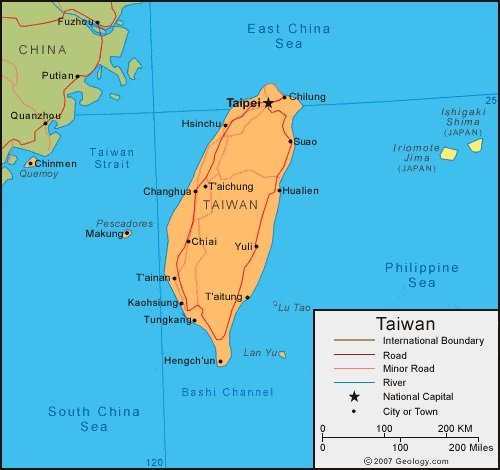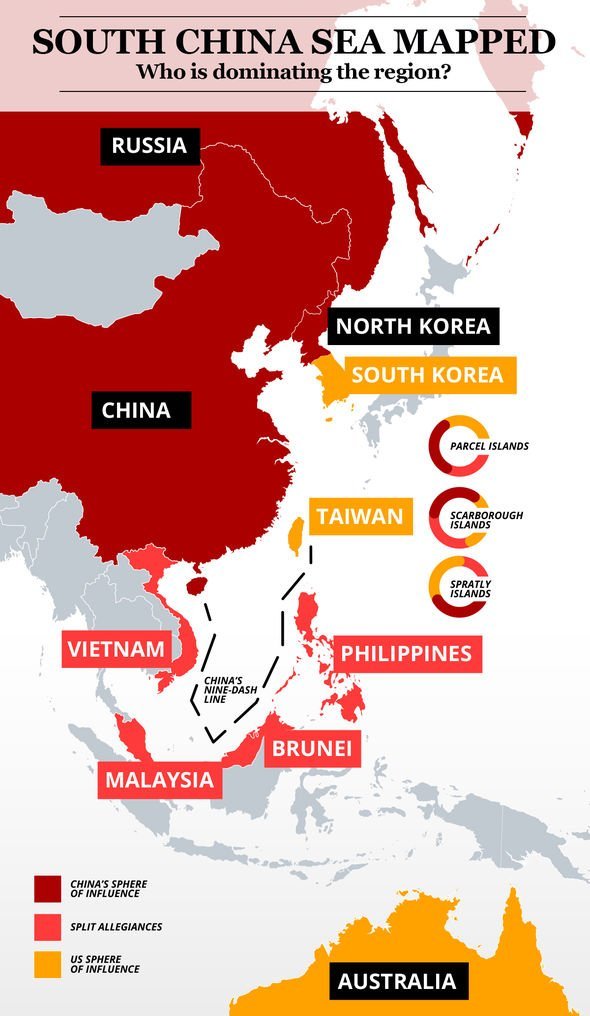It’s only been a couple months since the final disastrous days of America’s withdrawal from Afghanistan. But already we have seen the Biden administration and foreign policy establishment quickly pivot its attention to the growing potential for conflict and competition in the Pacific. This is likely by design, since the Biden administration has clearly stated that a driving force for the Afghanistan withdrawal was to finally begin the long-awaited “pivot to Asia” that has eluded previous administrations. From nuclear submarine deals to the threat of open war involving Taiwan, to China’s ridiculous propaganda memes, there are many reasons to begin paying serious attention to the events unfolding between the United States and China. This week, we’ll explain the pivot to Asia and why it is a delicate balancing act in American foreign policy.
China’s propaganda memes make Biden look way cooler somehow.
But First, What Is The Pivot To Asia All About?
We’ve brought up the tenuous U.S.-China relationship a few times before to discuss China’s island-building campaign in the South China Sea and it’s use of financial control to silence criticism from American companies. But the overall arc of the conflict is not exactly new. Since the end of the Cold War, the United States has mostly stood unchallenged in its domination of global affairs. It had by far the strongest economy, military, cultural appeal, and diplomatic leverage. But now, China has rapidly grown its economic power, expanded its military capabilities, and used international development aid to exploit poorer nations. The continued rise of China is unavoidable (and not necessarily a bad thing if it is done responsibly and with respect for human rights and the borders of other nations). But the United States has a choice to either retreat from China’s rise (and risk losing power to China) or confront China’s rise (and risk all-out war). This is the fabled Thucydides’ Trap which comes from the conflict in ancient Greece between a dominate power in Sparta and an ascending power in Athens which sparked the Peloponnesian War.
Wolf-Warrior Diplomacy
But this doesn’t mean that conflict is inevitable. This is why the Biden administration has consistently tried to tow the line between military deterrence and diplomatic/economic competition. The Chinese government has been very effective at using its near-total command of Chinese companies and the economy towards furthering the military and political interests of the Communist Party. These corporations often partner with companies looking to expand into the Asian marketplace, then steal those companies secrets and expel them from the region. China’s military expansion towards Taiwan and into the South China Sea has been increasingly aggressive and combative as well. This is a noticeable departure from China’s previous foreign policy, which emphasized careful and quiet expansion that followed the rules of international law. This new style is known as “Wolf-Warrior Diplomacy.” Though its effective in increasing China’s power in the short-term, this hasn’t exactly left China with many strong friends throughout the world. Australia in particular has felt threatened by China’s moves and is now looking towards traditional Western allies to balance this perceived threat.
China’s foreign policy now fits on a T-shirt.
Going Nuclear
One of the most dramatic turns in America’s pivot to Asia has been the recently unveiled Aukus alliance. This formal pact consists of Australia, the United Kingdom, and the United States and is designed to represent three major English-speaking and powerful naval forces working to counter rising Chinese influence in the Pacific. A cornerstone of this alliance is an agreement that the United States would provide its coveted nuclear-powered submarine technology to Australia. This is important because nuclear-powered submarines are much quieter than traditional diesel fuel subs and can stay submerged for extremely long periods of time. This allows them to be much more effective at covertly monitoring Chinese naval moves in the Pacific. Of course, the U.S. is only sharing the nuclear propulsion technology, not the ability to launch nuclear weapons from subs. You may recall that this greatly angered the French government. The French had a deal in place to provide Australia with its own diesel powered sub technology, but Australia and the U.S. negotiated this other deal in secret. The French government feels betrayed by this move by some of its strongest allies. This move also represents a significant shift in American foreign policy priorities. Since the end of the Second World War, America has nearly always chosen its interests in Europe over anything else. This latest move is a clear case of the United States directly choosing to support priorities in Asia instead of Europe.
The Quad
But Australia isn’t the only nation that the United States is looking to partner with in its competition against China. There are two other pivotal nations that form a unique alliance in the Pacific known as The Quad. This includes the U.S., Australia, Japan, and India. Japan has long felt threatened by China’s expansion and has its own disputed territorial claims. India shares a long border with China and has often seen China’s rise as a threat to its own domination along the Indian Ocean. India in particular has tried to avoid directly antagonizing China, attempting to keep America at a bit of a distance when it comes to direct competition with China. The United States, for its part, has also tried to maintain a balance between its working relationship with India’s main rival Pakistan. This relationship was necessary to help combat the Taliban in Afghanistan. But with the U.S. gone from Afghanistan, the Taliban in complete control, and some elements of the Pakistani government openly supportive of the Taliban takeover, there seems to be little benefit left in a close U.S.-Pakistan relationship. Instead, it makes far more sense to provide more direct assistance to India to help support India’s democracy and counter China’s rise.
The Flashpoint: Taiwan
All of this posturing and backroom dealing is designed to counter China’s economic and military power, but it’s doubtful that India, Australia, or Japan are in any serious risk of a Chinese military takeover. The tiny island nation of Taiwan, on the other hand, is a different matter entirely. Taiwan has maintained its independence from the Chinese mainland ever since the Chinese Civil War during the late 1940s. When the Chinese communist forces prevailed, the opposition fled to the island of Taiwan to establish their own government in exile. China has constantly been seeking the reunification of Taiwan into its own government ever since. The United States has stopped short of formally recognizing Taiwan (so it doesn’t enrage China), but still provides support for the government in Taiwan. Recently, China’s military actions towards Taiwan have become increasingly aggressive. In the past few weeks, dozens of planes and hundreds of military vessels have approached Taiwan’s territory in an apparent show of force. China consistently reminds the world that it wants to control Taiwan, which the United States strongly opposes. If anything were to lead to a full-scale military conflict in the Pacific, it is the status of Taiwan.
The Bottom Line
But why should we care what happens to a tiny island halfway around the world? Well, China’s ability to project naval force beyond Taiwan and the South China Sea would have major impacts on international trade. Nearly a third of the world’s trade passes through this region, so China would have the ability to place tariffs or restrictions on goods moving through this area. This would raise prices for nearly everything and put American companies at an extreme disadvantage. In addition, if other nations see that the U.S. is not willing to stand up to China to defend Taiwan, it undermines confidence in America’s backing of other major allies. In this vastly interconnected world, we need allies to support us in order to make better security and economic agreements that are negotiated to the benefit of the average American. If we don’t have a seat at the table, other nations who do not share our best interests will make deals that disadvantage Americans. In all, competition with China does not have to escalate into World War Three. If the United States can maintain a calm, but strong presence in the Pacific, we can continue to enjoy the benefits of America’s global leadership position for decades to come.




